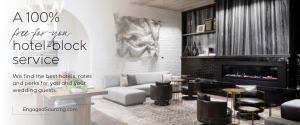When I was a young queer person, I remember thinking that adults around me all seemed to believe that “it gets better” (even before the It Gets Better Project launched in 2010). But when I’d get home from a day of eighth grade and flop down on my bed exhausted with a book in hand, I couldn’t see how.
I spent most of my late childhood to early teen years, from when I was around ten to fourteen, harassed and assaulted by other kids after I came out as queer. Even though I grew up outside liberal Boston, Massachusetts, in the first state in our country to legalize same-sex marriage in 2004, I felt very unsafe as an out queer person in the early 2000s. My classmates would find me: In music class, a boy asked me if I wanted to sleep with my own mom. In physical education, everyone cornered me one class period and pelted dodgeballs at me until I cried. In seventh grade, two older girls followed me home from school and threatened to burn me with cigarettes. When I was home, I would put on my rainbow pride pin and draw pictures of myself with an imagined future girlfriend. Was this the future that adults envisioned for me when they said it would get better?
In many ways, I’m fortunate and very privileged. I have an accepting family and didn’t lose anyone really close to me when I came out. Although I was bullied heavily for years, by mid-high school most of my friends and classmates reacted positively to the fact that I was queer and, with a few exceptions, treated my relationships with women the way they treated our other friends who were dating guys. For me, it did actually get better. I’m not sure if it’s because kids and teens are jerks by design or if the social climate has gotten better for LGBTQ+ people, but I feel not only safe being an out queer person now—I actually feel proud, confident and free. My fiancée and I live together in an apartment with our two cats and sans a little bit of awkwardness when wait staff, Uber drivers and animal shelter managers assume we’re just friends, we don’t usually run into trouble being who we are. When we got engaged earlier this year in Provincetown, Massachusetts, I even excitedly told the front office staff at our inn about the proposal, something I never would’ve had the courage to do ten years ago.
That’s why this year, my New Year’s resolution is to live—to thrive, to celebrate—for the queer, disabled teen I once was. I wish that I could copy/paste my life directly into her brain and show her: I have an entire community of LGBTQ+ disabled friends now. I’m actually okay with the fact that I use a cane and included it in my engagement photos. Next year, I get to marry the love of my life and along the way, I’ll edit some incredible queer weddings and write about the people shaking up this heteronormative, binary industry (like this awesome nonbinary wedding planner). I feel relatively safe holding my partner’s hand in public and dancing with her at nightclubs. I didn’t have trouble finding a photographer to capture our proposal; not a single person I contacted even hesitated at the fact that I was proposing to a woman. This is the world that eleven-year-old me could never have imagined, and it’s richer and more beautiful than I ever could have hoped.
Living for queer, disabled teen me isn’t just about celebrating what’s great. It’s also about honoring the struggles and fighting for what still isn’t right—the millions of Black and brown LGBTQ+ people who are at risk of police violence daily, LGBTQ+ disabled people who can’t marry their significant others because they’ll lose healthcare if they do, nationwide recognition for nonbinary gender markers, trans women who face the possibility of violence every day, LGBTQ+ sex workers who are constantly being discriminated against, LGBTQ+ kids and teens who are terrified that they’ll die at the hands of a school shooting. When I live for teen me, I’m also living for the teens who are out there today, wondering if things will get better. They won’t get better unless we all take collective and individual action. That’s a key part of my resolution: What can I do to make the world safer and freer for other LGBTQ+ people?
I’m holding emotional space for the trauma I’ve experienced as a queer, disabled person in a society that doesn’t always believe people like me should exist. I’m allowing myself to honor those feelings, to heal in my own time and be present with the self that I’ve taken so long to fall in love with. It often means being visible, vulnerable and showing up exactly as I am in the world, with my glitter shoes and my lavender cane and my rainbow books dress. Sometimes it means showing up and taking up space so that people can see they belong too; I’ll hear from sexual violence survivors or people with disabilities that they found a way to love themselves a little bit more because I was honest and proud. And I’m making space for other queers and LGBTQ+ people beside me. We’re chosen family, and we’re in this together. It gets better when we show each other empathy, compassion and love, backed by action and legal protections for everyone. It only gets better if we do something, so that’s my New Year’s resolution: To live for all of us.
































